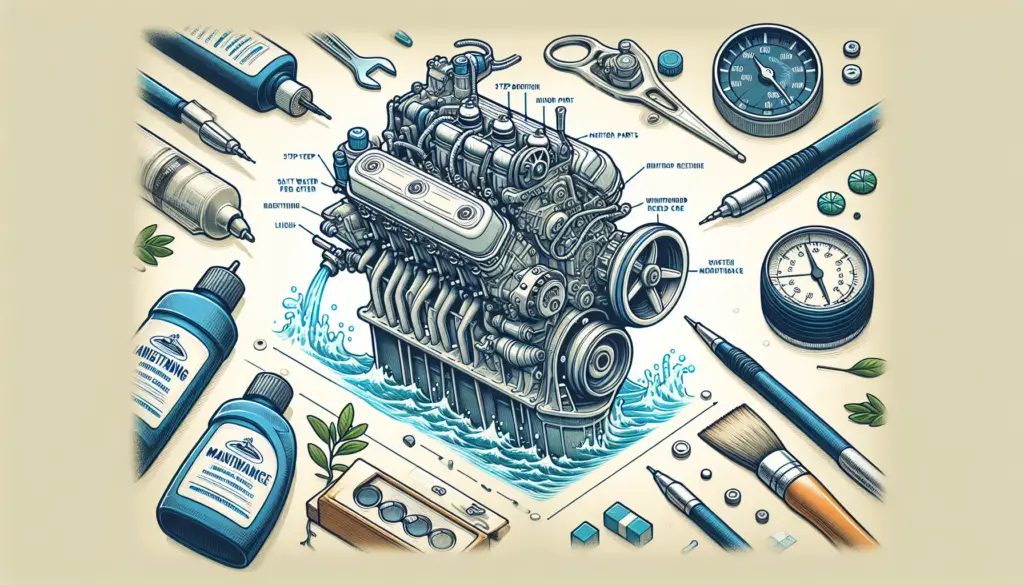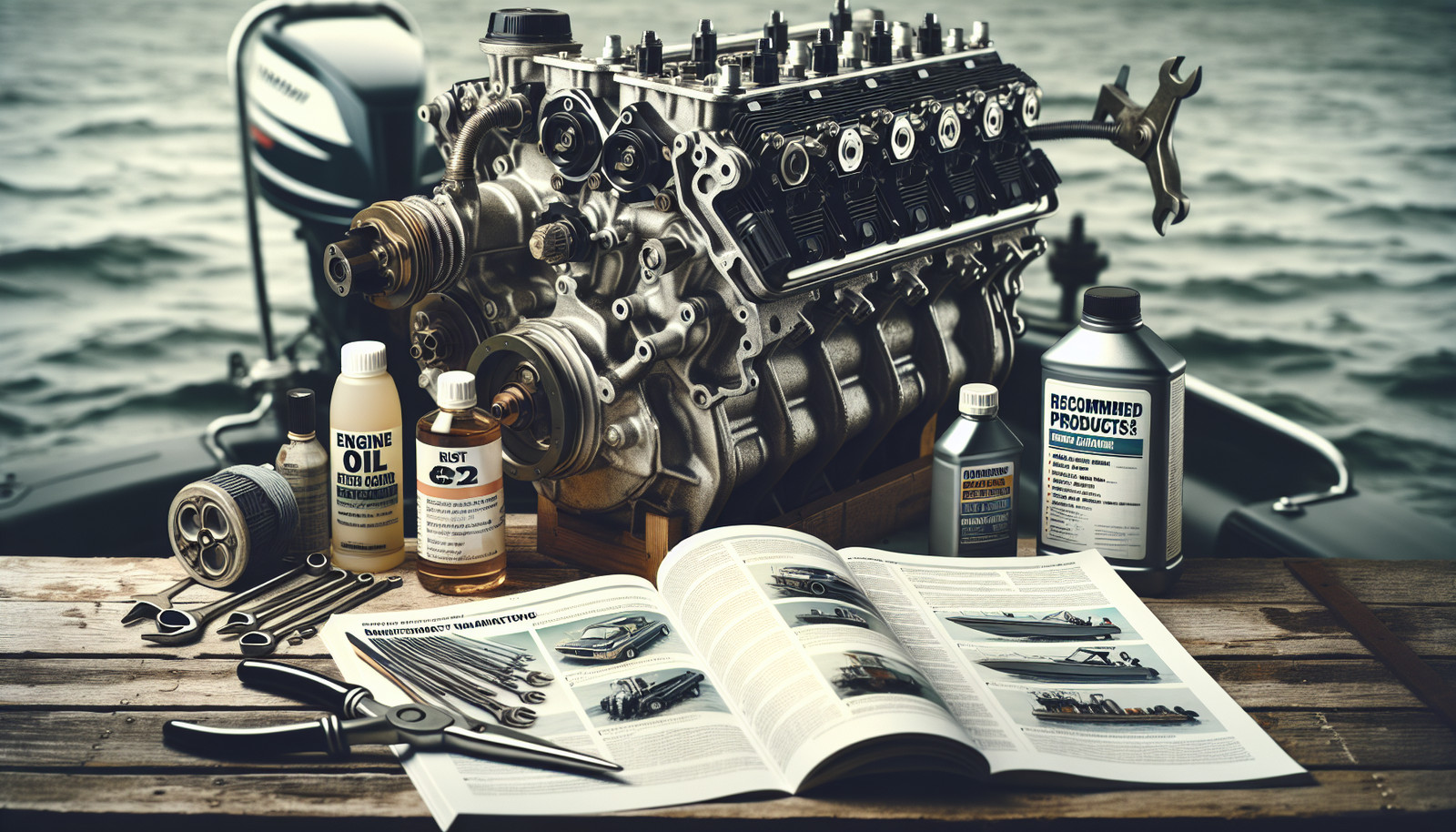Navigating the saline waters can be an exhilarating experience, but the aftermath can take a toll on your boat engine if proper care isn’t taken. The article “Best Ways To Care For Your Boat Engine After Saltwater Use” provides valuable insights into the specific steps necessary to ensure your aquatic motor remains in peak condition. Detailed information about freshwater flushing, careful corrosion inspection, and the perfect products to treat saltwater damage are all chronicled in this essential guide for every saltwater sailor.

Understanding the Impact of Saltwater
Boating in saltwater can certainly be a great experience. The open oceans, the scenic beauty, and the fresh, salty air are all part of what makes boating such a great pastime. Yet, there’s an aspect of this joy you ought to be aware of, that is the impact of saltwater on your boat, especially its engine.
Why Saltwater Is Harmful
Saltwater is damaging mainly because of its high salinity. When the salt in the water comes into contact with the metal parts of your boat, it can lead to a process known as corrosion, wherein the metal starts breaking down. Specifically, for boat engines, the salt can eat away at the engine parts, causing wear, tear and eventual damage.
Long-Term Impact of Saltwater Exposure
Over time, saltwater exposure can lead to serious damage. It’s not just an immediate effect. It progressively worsens as salt continues to corrode the engine parts. This corrosion can lead to decreased engine performance and ultimately cause the engine to fail completely.
Types of Damage Saltwater Can Cause
Saltwater can cause a range of damages. It might begin with surface discoloration or rusting, which eventually contributes to the weakening of the engine components. In the worst-case scenario, over time the engine could seize, leak, or just stop functioning completely.
Preventing Saltwater Damage
The best approach to dealing with saltwater damage is preventing it in the first place. Prevention not only saves you from potential repair costs but also ensures that your boat’s engine remains functional for longer periods.
Routine Maintenance Tasks
Routine maintenance is key. This includes regular checking and cleaning of the engine. It’s important to regularly flush out the engine with fresh water and anti-corrosion solutions to remove any traces of saltwater.
Choosing High-Quality Engine Components
Invest in high-quality engine components that have been designed to resist the corrosive effects of saltwater. These might be a bit pricey than the regular components, but they will serve you longer and better.
Using Anti-Corrosive Treatments
This involves regularly applying anti-corrosive treatment agents to the engine. These will form a protective layer against saltwater and heat, thereby reducing the likelihood of corrosion.
Installing Corrosion-Resistant Anodes
Corrosion-resistant anodes, commonly known as sacrificial anodes, are another effective preventive measure. They attract the process of corrosion to themselves, sparing the rest of the engine.
Managing Saltwater Exposure
Well, prevention doesn’t completely exclude the need to manage saltwater exposure as the latter further reinforces the former.
Reducing Time in Saltwater
The less time your boat spends in saltwater, the less likely it is to suffer damage. Always make sure to remove the boat from the water when not in use.
Choosing the Right Marine Lubricant
A good quality marine lubricant can help protect your engine from saltwater damage by reducing friction and wear. Plus, some marine lubricants come with added anti-corrosive properties.
Proper Storing of Boat After Use
After a day out in the sea, rinse your boat’s exterior and the engine with freshwater and dry thoroughly before storing. And be sure to store your boat in a dry and covered place.

Essential Tools for Boat Engine Care
The market is filled with various tools and products that can make engine care easier and more effective.
Salt-Away Cleaning Solution
This is a solution specifically designed to remove salt residues from boat engines. It can be used to flush the engine or simply spray and rinse the exterior.
Corrosion Block Spray
This product creates a protective layer on your engine’s external and internal parts, guarding against corrosive damage from saltwater.
Necessary Regular Maintenance Tools
These may include a range of things, from engine flushing muffs to water hoses, grease guns, lubricants, brushes, and rags.
Where to Purchase Necessary Engine Care Tools
Quality engine care tools can be purchased from marine supplies stores, boating equipment outlets, or online retailers.
Cleaning a Boat Engine After Saltwater Use
Cleaning your boat engine is integral to its care following exposure to saltwater.
Flush Engine with Clean Water
Flushing the engine with clean water removes salt deposits. Be sure to run the engine while flushing so that the water reaches all parts.
Clean Engine Surface with Salt-Away or Similar Products
Salt-Away can help dissolve the salt deposits in the engine. Simply spray the solution on the engine and rinse it off after some time.
Tips For Safe and Effective Engine Cleaning
Ensure you follow all safety procedures. Also, be comprehensive; ensure you reach all parts of the engine, including hidden corners.
Preventing Corrosion
The case of saltwater damage and corrosion has been well established, and here’s how to prevent it.
Importance of Anodes in Corrosion Prevention
Anodes ‘sacrifice’ themselves by attracting corrosion, thereby saving the rest of the engine. They are therefore an important part of your boat engine care routine.
Replacing Anodes Regularly
Over time, anodes will corrode and eventually wear out. It’s important to regularly check them and replace if necessary.
Extra Care for Aluminum Components
Aluminum components, though lightweight and strong, corrode easily when exposed to saltwater. They, therefore, require extra care and protection.
Checking the Boat Engine Regularly
Routine checks are key in ensuring your engine stays in good shape as they catch potential problems in time.
Weekly Check-Ups
A weekly check-up, whether the boat is in use or not, can help detect early signs of potential problems.
What to Look For During an Engine Check
During an engine check, look out for signs of rust, discoloration, leaks, cracks, or any unusual noises when the engine is running.
Arranging Yearly Professional Inspections
Aside from weekly self-checks, it’s important to get a professional to inspect the engine once a year, or more frequently based on usage.
Dealing with Saltwater Damage
In the unfortunate event that you have to deal with saltwater damage, it’s important to recognize the signs and act accordingly.
Indicators of Saltwater Damage
Signs can include rust, cracks, holes, leaks, or changes in the engine performance such as noises or reduced power.
Professional Repairs Vs DIY
While minor repairs might be manageable on your own, more serious damages need professional technicians for proper repair.
When to Replace Components Instead of Repairing
Certain components might be beyond repair due to extensive damage. In such cases, it’s wiser, and sometimes cheaper, to replace them.
Properly Storing Your Boat
The way you store your boat significantly determines its vulnerability to saltwater damage.
Pre-storage Cleaning Process
Before storing, always clean your boat thoroughly, paying keen attention to the engine and the internal components.
Where to Store Your Boat
A dry, covered, and well-ventilated area is ideal for boat storage as it keeps off moisture that can exacerbate corrosion.
Tips for Long-Term Storage to Prevent Saltwater Damage
If your plan is to store the boat for a very long time, consider using a rust inhibitor or fogging oil to protect the engine components.
Educating Yourself about Boat Engine Care
Being a boat owner, it’s essential to educate yourself on proper boat engine care.
Reading the Owner’s Manual
The owner’s manual is packed with invaluable information directly from the manufacturer of your boat. It’s an excellent starting point.
Attending Boat Maintenance Workshops
Such workshops offer a hands-on learning experience where you can learn from experts about maintaining your boat engine and dealing with potential problems.
Staying Updated on Latest Boat Care Products and Techniques
Just like in any other industry, advancements are made every day in the boating world. Staying updated ensures you can access better and more efficient boat care solutions. Remember, caring for your boat engine after saltwater use is not just about maintaining its performance, but also about expanding its lifespan. Happy boating!

